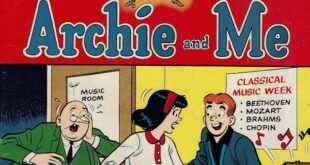I was a reasonably docile child who misbehaved only occasionally, though among the first things I did when I could grasp a pencil was to use it to punch holes in the faces of all the photos in our family album — one in the mouth and one in the eyes. I also acquired the habit of sticking my tongue out, and my father once love-tapped me on the lips to discourage it. After that, I still did it, but only while cupping my hand over my mouth and crouching on the far side of the washing machine from my parents as they lingered at the kitchen table after dinner.
When I made less-objectionable types of faces, my mother told me that if an angel who happened to be flying by saw me, he would say “Amen!” and I would have to spend the rest of my life looking like that. This deterred me for about 15 minutes, at which point I began shouting “Amen! Amen!” while grimacing to my heart’s content.
I once told my parents I was just “playing with the water” when they wanted to know why I locked myself in the bathroom, though I had actually used my father’s matches to light a long strip of toilet paper in the bathtub. I had gotten a little alarmed when it flared up, illuminating the walls with a hellish light, so I quickly tamped it down, ran a lot of water in the tub, and flushed the charred remnants down the bowl. To deter me from overlong stays in the bathroom, my father informed me it was the lurking place of the Mammone. This was a bogeyman whose invocation kept Italian children in line. Dad pointed out that the growling of the water in the leaky toilet bowl was the angry voice of the Mammone himself. Though I made believe I bought it, I didn’t.
I must have committed other serious offenses, including using a nutcracker to put a crack in a corner panel of our big living room mirror, because my father sometimes ran a chain secured by a lock through the door handles of our Philco television cabinet. This prevented me from watching TV during a day when I was supposed to be punished. Either he didn’t trust my mother to enforce his strictures while he was at work or, more likely, he wanted to impress on me the heinousness of my crime by forcing me to confront the consequences of my actions every time I saw that big padlock.
Although my father was the disciplinarian in chief, my mother wasn’t helpless in that department. For example, she made good use of a three-tiered signal that she surreptitiously conveyed when I was misbehaving in company. In the least threatening degree of it, she would smile at me a bit sinisterly and quickly bite her index finger at the knuckle. This meant I should immediately stop whatever I was doing or shut my mouth if I was talking. The symbolism was obvious: “Make believe my finger is you.” I earned one of those once on remarking to Mom’s friend that a boy whom the woman thought looked just like her son was indeed such a dead ringer for him that “he even has pimples all over his face.” Turning her back to the woman, my mother bit her finger at me, her eyes flashing like wrathful Athena’s at the siege of Troy.
Instead, when my mother bit the back of her hand slightly above the thumb, accompanied by a Gorgon-stare, the unspoken message was, “It’s too late! You’ve gone much too far and you’re going to get hit when we get home, maybe even out in the street if I can’t wait that long.” Or sometimes, if she could slip in a few words unobtrusively after biting her hand, she’d unleash a dialect threat like “Tuh shkossuh luh ganosh!” (“I’ll wreck your jaws!”)
But by far the most horrific of the three stages of occult signals consisted of her attempt to bite her elbow, which is, of course, impossible, but the meaning was clear: “You’ve reached the end of the line. When we get home, you’re very dead meat.” This was such a dismaying state of affairs that I would try to appease her by promises to reform, profuse blandishments, and even, on rare occasions, a form of desperate blackmail that involved glaring wide-eyed at her like a dangerous lunatic. By that means, I threatened to create an enormously embarrassing scene right then and there, unless she swore I wouldn’t be murdered (that is, that she wouldn’t breathe a word to my father).
Her promise had to take the solemn form of “shcrookuh yu cruzheet” (“uncross the little cross”). This involved using my index fingers, with the nail-sides facing up, to represent a cross. Then my mother would have to take a pledge, such as, “Alright, although you deserve to get totally killed, for this one, single, last time I won’t tell your father about any of this — but, oh boy, the shambles we’re going to make of you the next time this happens!” While reciting the last words, she had to use her index finger to uncross the little cross of my fingers, thereby incurring the risk of sacrilege if she violated her oath. By and large, shcrookuh yu cruzheet was a fairly reliable expedient to make sure she kept her word.
 Fra Noi Embrace Your Inner Italian
Fra Noi Embrace Your Inner Italian






